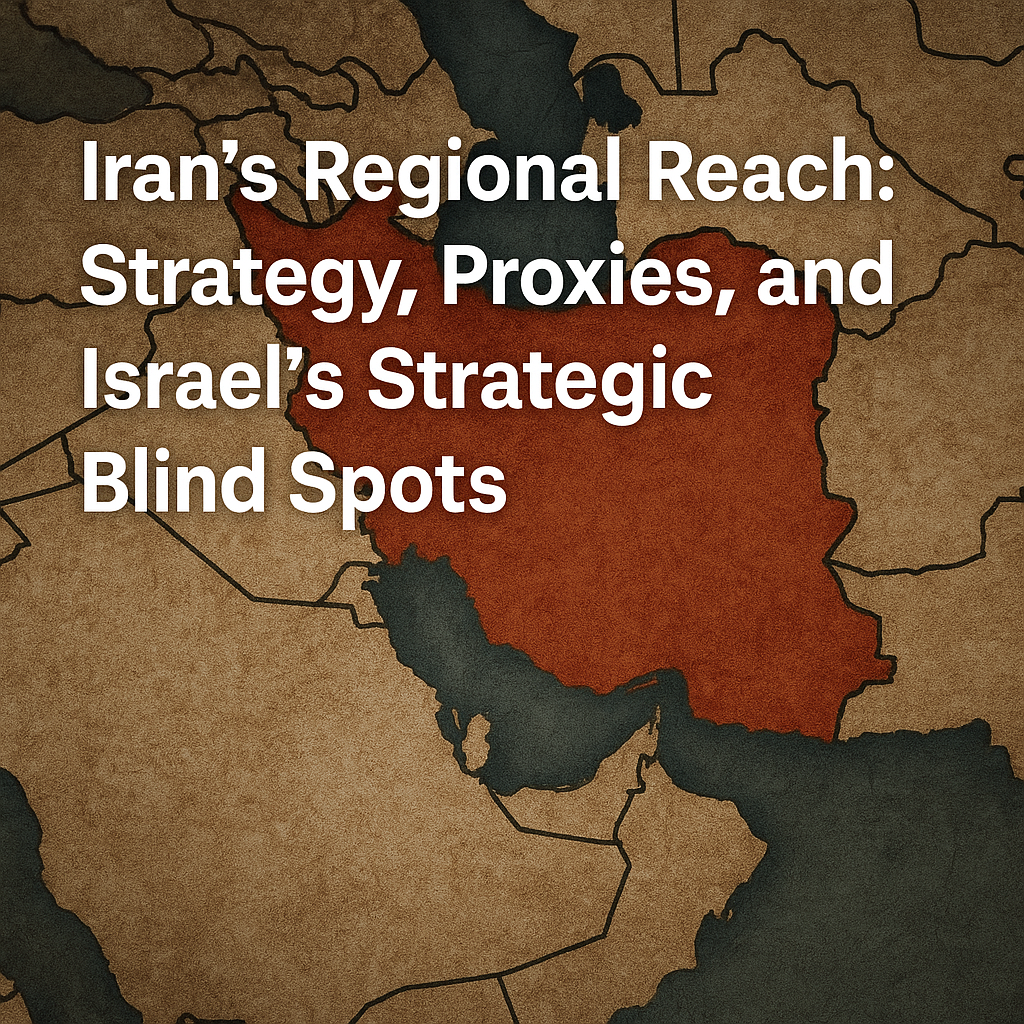
Iran’s Regional Reach: Strategy, Proxies, and Israel’s Strategic Blind Spots
By Yavin Admin, May 2025
📺 To watch the content : Click here
Introduction
In recent years, Iran’s role in Middle Eastern instability has drawn increasing global scrutiny. But how much of what we’re seeing—from Gaza to Beirut—is truly directed by Tehran, and how much is executed independently by its proxies?
In a candid and incisive interview, Brigadier General (res.) Aharon Zeevi Farkash, former head of IDF Military Intelligence and incoming member of the October 7 review team, unpacks Iran’s influence, nuclear ambitions, and the strategic oversights he believes have weakened Israel’s deterrence. This blog post summarizes key insights from that interview.
Strategic Influence, Not Direct Control
The interview opens with a reference to the assassination of Salah al-Arouri, Hamas’ number two in Beirut. Following this event, Supreme Leader Ali Khamenei reportedly ordered retaliatory rocket fire toward Mount Meron. Still, Farkash emphasizes that Iran does not micro-manage every attack executed by its affiliated organizations. Instead, Iran operates by setting strategic intentions and ideological tone, leaving tactical execution to its proxy forces on the ground.
That said, he notes that Tehran does engage in consultations on timing and regional impact. Iran may signal that “now is the time to strike,” particularly if global conditions—such as maritime disruptions—align with its broader geopolitical goals.
The Power of Strategic Coordination
Iran’s ability to influence events through proxies is not only effective—it’s deliberate. According to Farkash, while Iran may not issue detailed operational orders, it ensures that strategic consultations happen frequently. This includes meetings between senior Iranian officials and the leadership of Hamas and Hezbollah, as well as high-level summits in Tehran with regional militia heads.
Iran’s ultimate goal, he argues, is to maintain the ability to strike at the heart of Israel using indirect means. This system of influence gives Tehran plausible deniability while maximizing regional leverage.
Iran Builds; Israel Buys Quiet
Farkash criticizes Israel’s long-standing reactive posture. While Iran builds influence, arms proxies, and embeds itself with both Shiite and Sunni factions, Israel has focused on preserving short-term quiet. “We bought silence,” he says—meaning Israel tolerated growing threats in exchange for temporary calm.
He adds that, since Prime Minister Ariel Sharon, Israel has lacked a coherent and sustained foreign policy to deal with Iran’s rise. Even during his own tenure under Prime Minister Ehud Olmert, Farkash felt the absence of a unified long-term strategy to prevent Iran from obtaining nuclear weapons.
The Nuclear Clock Is Ticking
Farkash delivers a stark warning: Iran is about one week away from enriching uranium to weapons-grade levels (90%). This would be enough for one bomb. Within six months, the Islamic Republic could produce enough material for six to eight nuclear warheads.
Despite the withdrawal from the JCPOA nuclear deal in 2018, he argues that Israel and the U.S. have not backed their rhetoric with meaningful action. Washington, he believes, will not initiate military action. As for Israel, he doubts its political leadership is prepared to take the necessary steps either.
A Point of No Return?
When asked whether military intervention is still on the table, Farkash expresses concern that it may be too late. The question of whether Iran will become a nuclear power now rests solely with one man: Supreme Leader Ali Khamenei. “The decision is his. Nothing else matters,” he says.
It’s a chilling reflection, especially coming from the very man who first exposed Iran’s covert shift from a civilian nuclear program to a military one. According to Farkash, Iran’s nuclear capability, combined with its regional entrenchment, places it firmly in the category of a regional power—with a dangerous vision for expansion.
Conclusion
Farkash’s testimony provides a sobering view into the strategic missteps that may have allowed Iran to become one of the Middle East’s most dangerous and unpredictable players. Through indirect control, ideological influence, and deliberate ambiguity, Iran has become the puppeteer behind much of the region’s unrest—while Israel, according to Farkash, has failed to match this complexity with its own strategic clarity.








